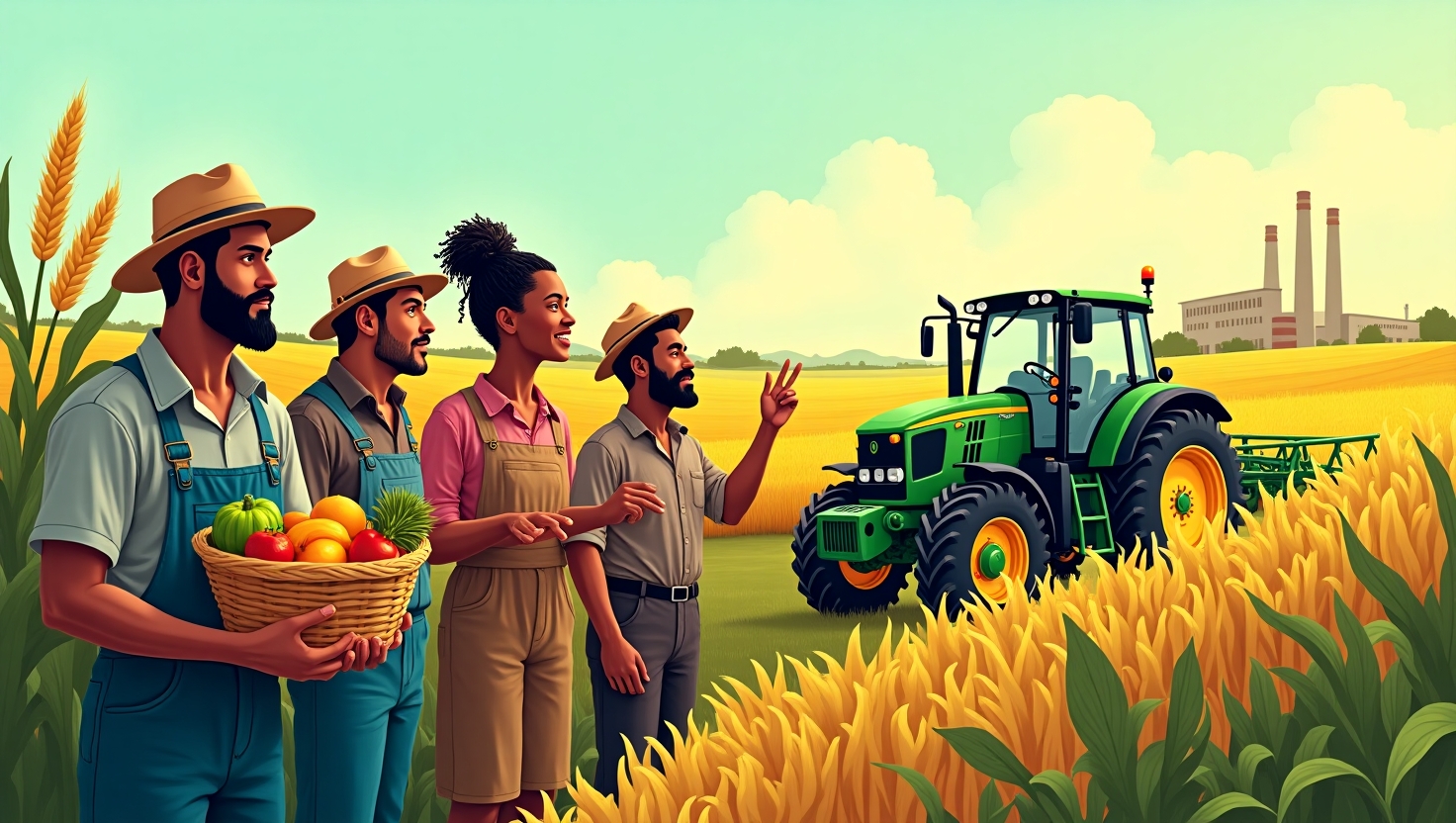The Importance of Agriculture in the Global Economy
In a world driven by rapid technological advancements and urbanization, it’s easy to overlook the quiet yet essential role of agriculture in sustaining the global economy. Beyond providing the food we eat, agriculture forms the backbone of livelihoods, trade, and environmental balance. Its influence stretches far beyond farms and fields, shaping economies, cultures, and even geopolitical stability.

A Foundation for Food Security
At its core, agriculture ensures that populations are fed. With a growing global population—projected to reach nearly 10 billion by 2050—the demand for food will only increase. Sustainable farming practices, advancements in crop yields, and efficient distribution systems are crucial to preventing food shortages and malnutrition. Without a stable agricultural sector, food prices can become volatile, leading to economic strain and social unrest.
Economic Contributions and Employment
Agriculture remains one of the largest employers worldwide, particularly in developing nations where it accounts for a significant portion of GDP. From small family farms to large agribusinesses, the sector supports millions of jobs, both directly and indirectly. Beyond farming itself, agriculture fuels industries such as food processing, logistics, and retail, creating a ripple effect throughout economies.
In many countries, agricultural exports are a key source of income. Crops like coffee, wheat, and soybeans are traded globally, contributing to national revenues and strengthening trade relationships. A decline in agricultural productivity can disrupt these economic flows, underscoring the need for investment in resilient farming methods.
Environmental Stewardship
Agriculture is deeply intertwined with the environment. Sustainable farming practices—such as crop rotation, organic farming, and agroforestry—help maintain soil health, conserve water, and reduce carbon emissions. Conversely, poor land management can lead to deforestation, soil degradation, and loss of biodiversity.
As climate change intensifies, the agricultural sector must adapt. Innovations like drought-resistant crops, precision farming, and regenerative agriculture offer promising solutions to balance productivity with ecological preservation.
Cultural and Social Significance
Beyond economics, agriculture shapes cultures and traditions. Farming practices, seasonal harvests, and local cuisines are deeply rooted in communities worldwide. In many regions, agriculture is not just an industry but a way of life, passed down through generations. Supporting small-scale and indigenous farming helps preserve these traditions while promoting food diversity.
The Path Forward
To ensure agriculture continues to thrive, governments, businesses, and individuals must prioritize policies that support farmers, encourage sustainable practices, and invest in agricultural research. From reducing food waste to improving supply chains, collective efforts can strengthen this vital sector.
Agriculture may not always dominate headlines, but its quiet persistence sustains nations. By recognizing its importance, we can foster a more stable, nourished, and economically balanced world.
What are your thoughts on the role of agriculture in today’s economy? Share your perspective in the comments below.